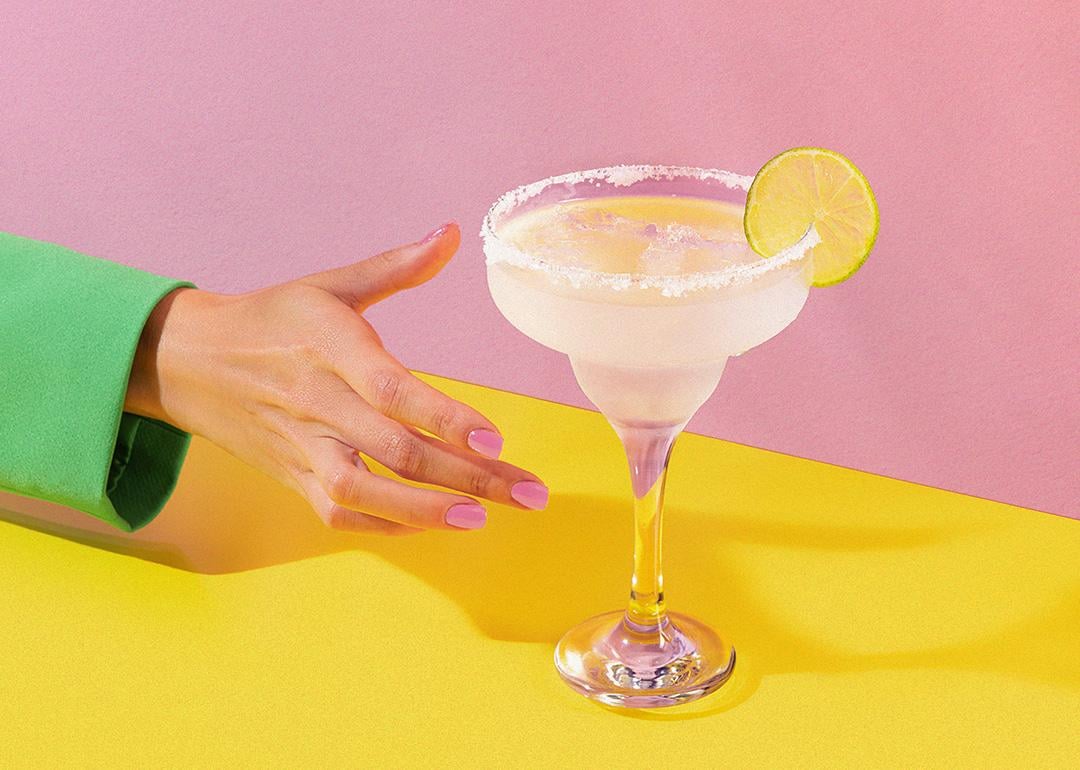
From bar to barre: Where we're going this Dry January
This story was produced by Lyft and reviewed and distributed by Stacker.
From bar to barre: Where we're going this Dry January
For many, it's hard to imagine surviving the holidays—interacting with family, mingling at the office party, passing the long, dark nights—without a stiff drink.
But then along comes January, when about half of U.S. adults consider taking a break from drinking. This "Dry January" trend is evident in Lyft data. Over the past three years, the share of riders going to or from bars and pubs dropped an average of 6.5% in January. Last year, the decline was the most pronounced, at over 10%.
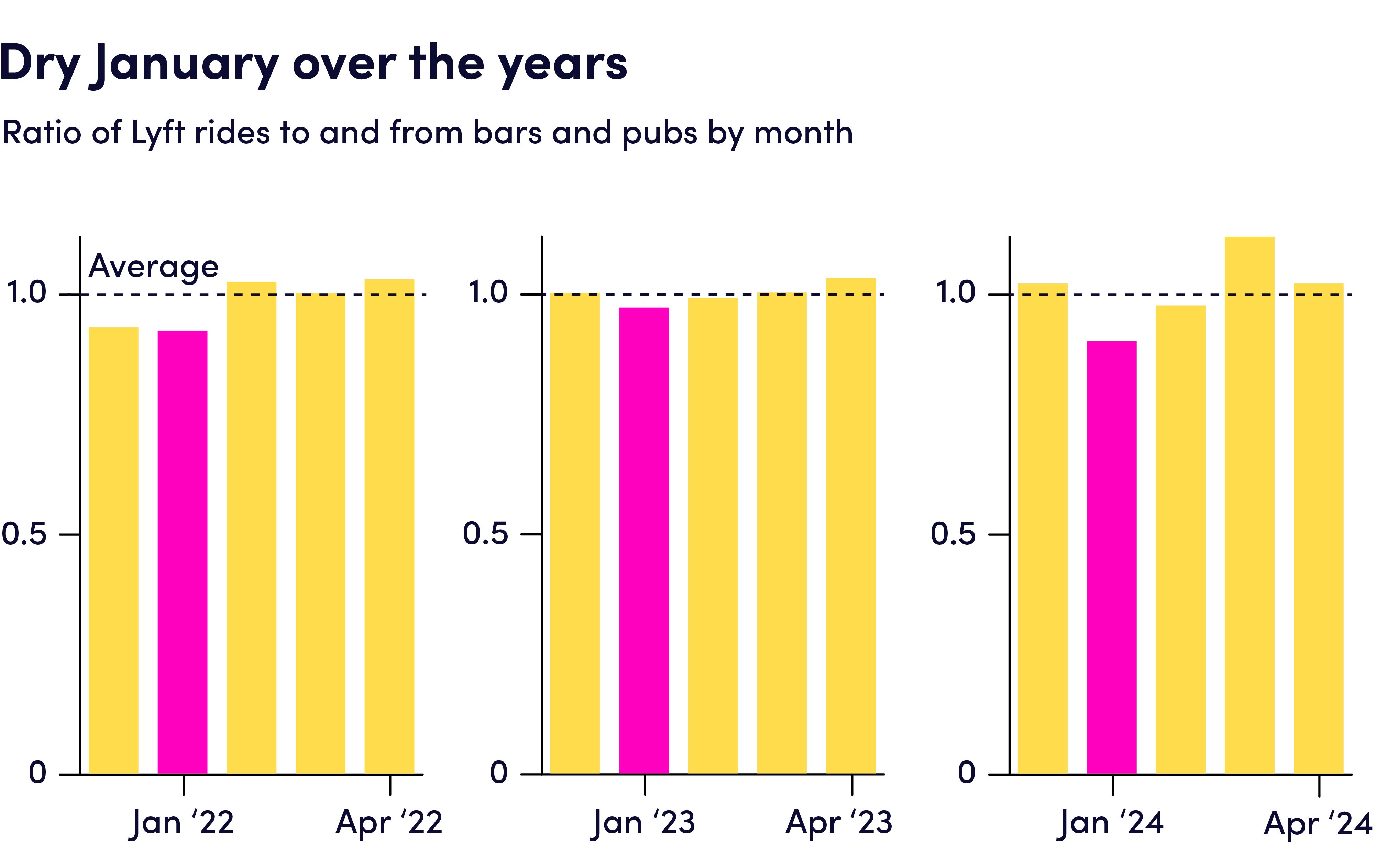
Bar Ridership Bounces Back After January Lull
In general, the second week of January is the driest. By the third week, however, bar drop-offs and pickups increase by about 5%. And by February, bar ridership is about back to normal levels.
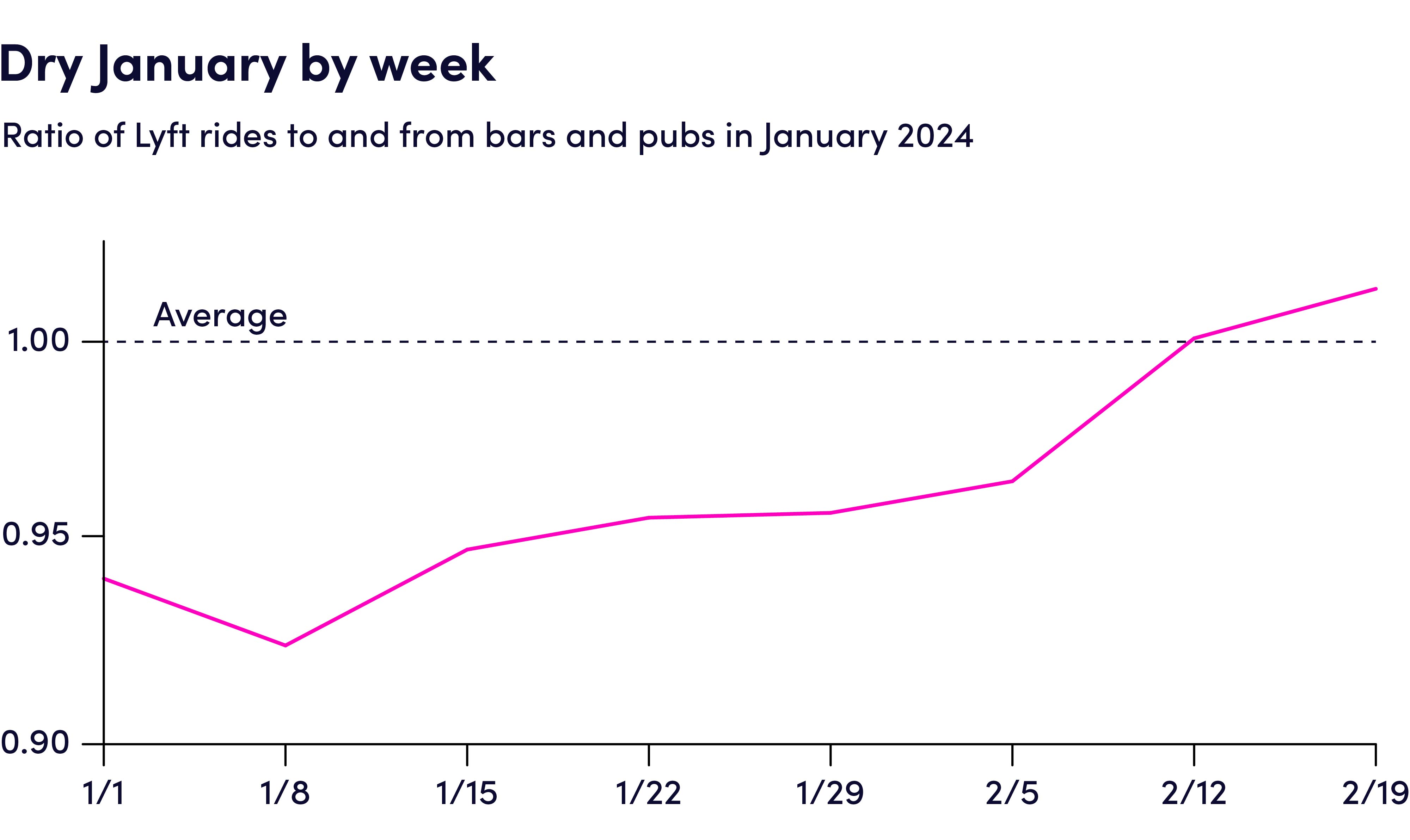
Regional Trends Show Mixed Bar Activity in January
Of course, not all places refrain equally. The Midwest (most notably, Kansas City, Missouri; St. Louis, Missouri; and Sioux Falls, South Dakota) experiences a 25% decline in bar activity. On the other hand, Las Vegas and college towns like Gainesville, Florida, and Tempe, Arizona, actually experience a slight increase in the New Year.
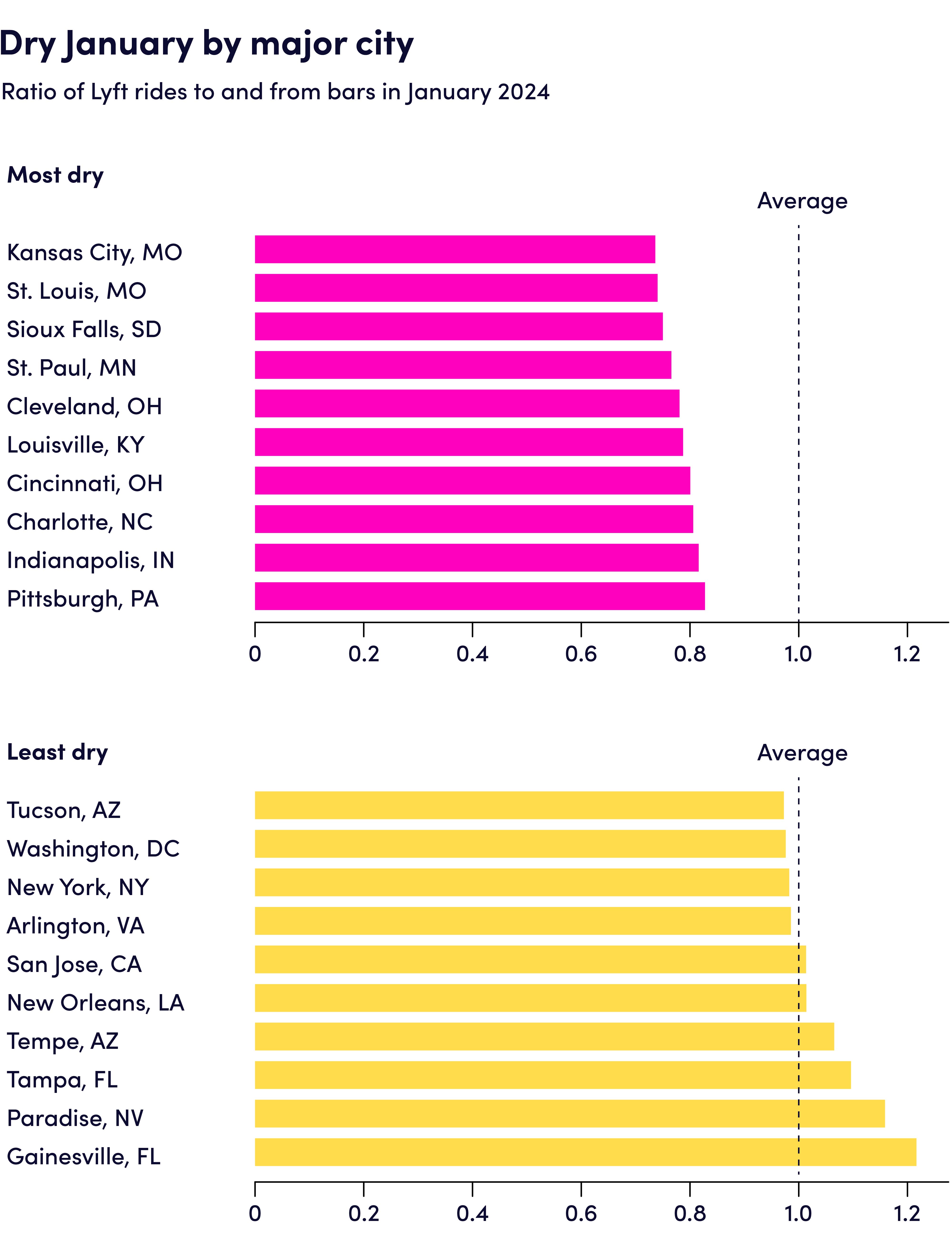
Dry January Sparks Healthier Habits and Early Morning Rides
But Dry January is not just about sacrifice. It's also about making room for other, healthier activities.
It turns out, people get up earlier in January. Lyft customers are 4% more likely to take a Lyft ride between 6 a.m. and 9 a.m. in January than usual. And some of these early risers are fulfilling the classic New Year's resolution of going to the gym. Indeed, rides to the gym shoot up 20% in January—and stay elevated through March.
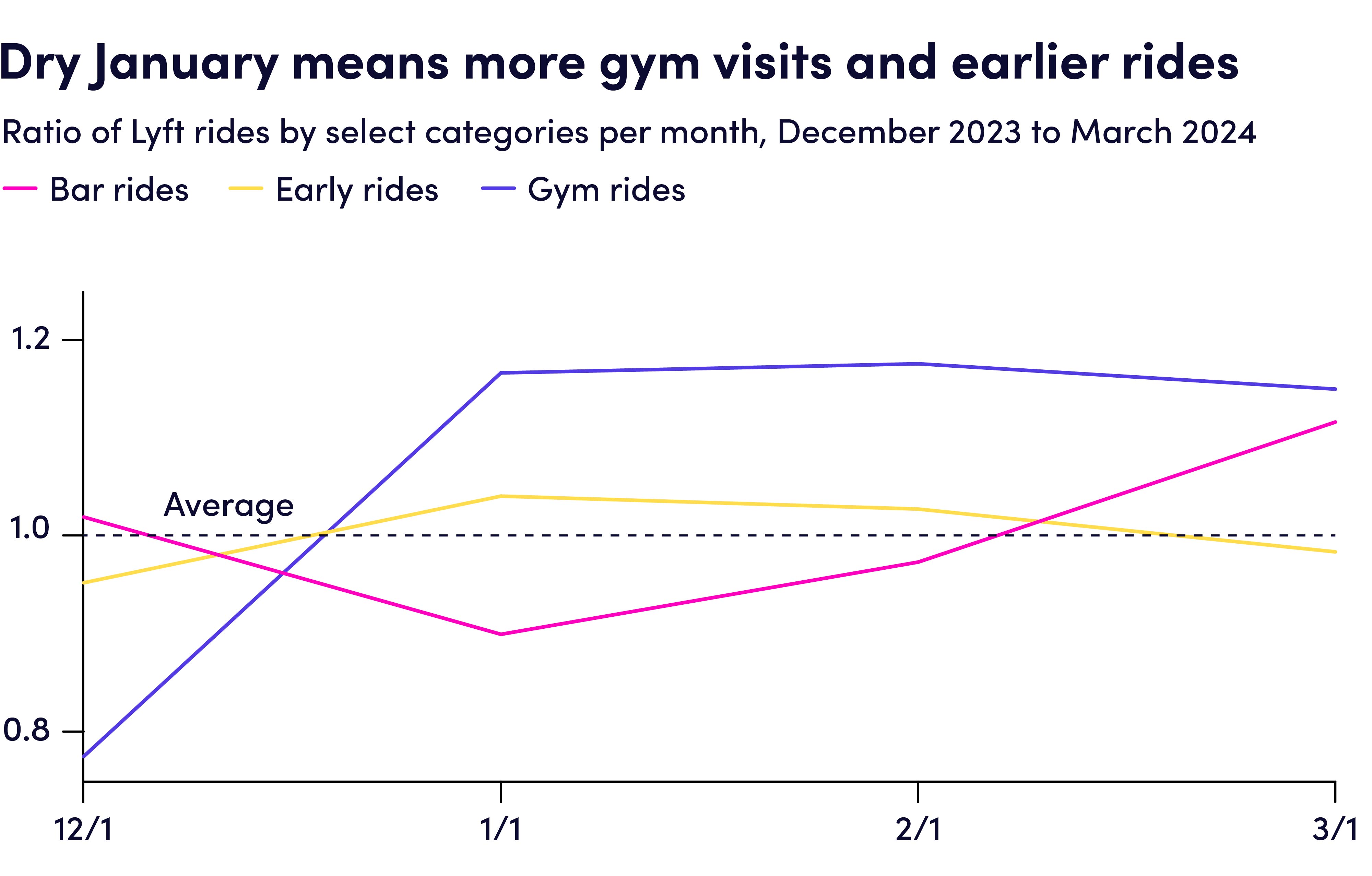
Methodology
Rev analyzed aggregate ride data in all regions in the U.S. from December 2021 through December 2024. The core statistic was the share of all rides that were to/from bars or pubs in January, relative to the average share between the three months before and three months after January. This statistic is shown weekly (chart 2) and by region (chart 3). Additionally, Lyft compared it with the share of rides to gyms and the share of rides that occur between 6 a.m. and 9 a.m.



